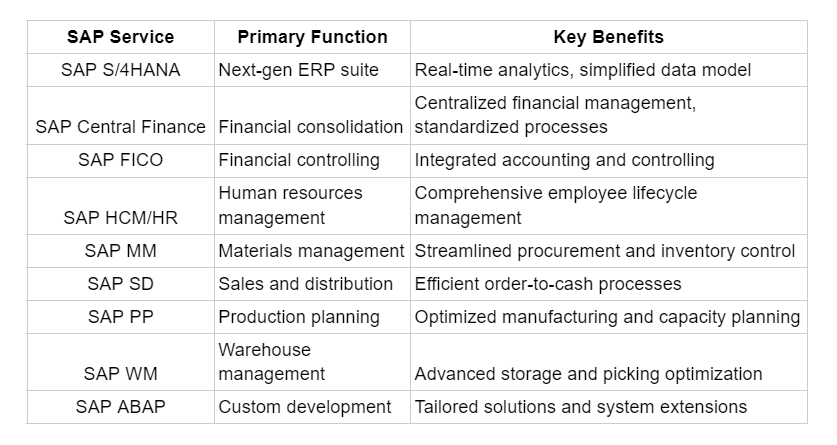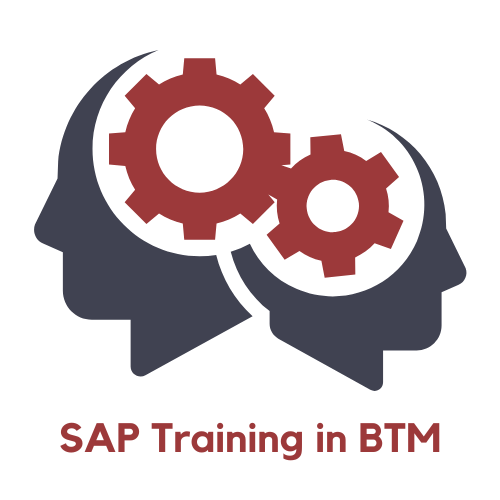SAP SD Training Near Me
Mastering SAP Sales and Distribution: Your Guide to SAP SD Training Near Me
Introduction to SAP SD Training Near Me
In today’s fast-paced business world, proficiency in SAP (Systems, Applications, and Products) modules has become a crucial asset for professionals seeking to advance their careers in enterprise resource planning (ERP) and business process management. Among these modules, SAP Sales and Distribution (SD) stands out as a cornerstone for organizations striving to optimize their sales processes, customer relationships, and distribution channels. This comprehensive guide delves into the world of SAP SD Training Near Me, offering insights into how local training options can propel your career to new heights.
SAP SD Training in Bangalore has gained significant traction among aspiring professionals and seasoned experts alike. This localized approach to learning offers numerous advantages, from personalized attention to networking opportunities within your immediate business ecosystem. As we explore the multifaceted aspects of SAP SD Training Near Me, we’ll uncover the reasons behind its growing popularity and how it can be a game-changer for your career trajectory.

What is SAP SD?
Before diving deeper into the training aspects, let’s briefly understand what SAP SD entails. SAP Sales and Distribution is a module within the SAP ERP system that focuses on managing all transactions and processes involved in the order-to-cash cycle. It encompasses various business processes, including:
- Pre-sales activities
- Inquiry and quotation management
- Order processing
- Delivery scheduling and processing
- Billing and payment processing
- Customer service and support
Mastering these areas through a comprehensive SAP SD Course Near Me can significantly enhance your value in the job market and contribute to organizational efficiency.
Table of Contents
- Introduction to SAP SD Training Near Me
- Why Choose SAP SD Course Near Me?
- Comprehensive Training Methodologies
- Career Trajectories in SAP SD
- The Significance of Hands-On Experience
- SAP SD Across Industries
- Global Trends Shaping SAP SD
- Community Engagement and Continuous Learning
- The SAP Ecosystem: Beyond SD
- Choosing the Right SAP SD Training Near Me
- Conclusion: Empowering Your Career with SAP SD Expertise
Why Choose SAP SD Course Near Me?
Opting for an SAP SD Course in BTM Layout, Bangalore offers several distinct advantages over remote or generalized training programs:
- Personalized Learning Experience: Local training centers often provide smaller class sizes, allowing for more individual attention and tailored learning experiences.
- Networking Opportunities: Engaging with local professionals and instructors can lead to valuable connections within your immediate business community.
- Hands-on Practice: Many local courses offer access to physical SAP systems, providing hands-on experience that’s crucial for practical skill development.
- Cultural Context: Local trainers can provide insights into regional business practices and how SAP SD is implemented in nearby industries.
- Flexible Scheduling: Proximity to the training center allows for more flexible scheduling options, making it easier to balance work, life, and learning.
- Post-Course Support: Local training providers often offer continued support and resources after course completion, which can be invaluable as you apply your new skills in real-world scenarios.
By choosing a SAP SD Training Near Me, you’re not just learning a system; you’re immersing yourself in a local ecosystem of SAP professionals and opportunities.
Comprehensive Training Methodologies
The success of any SAP SD Training Near Me program relies heavily on its training methodologies. A well-structured course combines various teaching approaches to ensure that students gain both theoretical knowledge and practical skills. Let’s explore some of the key methodologies employed in top-tier SAP SD Course Near Me offerings:
Hands-On Learning
One of the most effective ways to learn SAP SD is through hands-on experience. This approach involves:
- Real-Time Simulations
- Training institutes often use simulation software that mimics the SAP environment.
- Students can practice real-world scenarios, such as processing sales orders, managing deliveries, and generating invoices, in a risk-free setting.
- This practical experience builds confidence and prepares learners for real-world challenges.
- Case Studies
- Many training programs incorporate case studies from actual businesses that have implemented SAP SD.
- Analyzing these cases helps students understand the challenges and solutions faced by organizations, providing practical insights into the application of SAP SD.
- Case studies often cover various industries, giving students a broad perspective on SAP SD implementation.
- Project Work
- Group projects are a common feature of SAP training.
- Students collaborate on projects that require them to apply their knowledge in a team setting, mirroring the collaborative nature of real-world SAP implementations.
- These projects often simulate end-to-end business processes, helping students understand the interconnectedness of various SAP modules.
Blended Learning Approaches
Blended learning combines traditional classroom methods with online resources, offering flexibility and a comprehensive learning experience. Key components include:
- E-Learning Modules
- Many institutes provide access to online learning platforms where students can access video lectures, quizzes, and interactive content at their convenience.
- These modules often cover foundational concepts and allow students to learn at their own pace.
- Webinars and Workshops
- Regular webinars led by industry experts allow students to learn about the latest trends and technologies in SAP SD, enhancing their understanding of the field.
- Interactive workshops provide opportunities for deep dives into specific SAP SD functionalities.
- Peer Learning
- Online forums and discussion groups facilitate peer-to-peer learning, enabling students to share knowledge, ask questions, and collaborate on assignments.
- This collaborative approach helps in building a supportive learning community.
Innovative Teaching Techniques
To make SAP SD Training Near Me more engaging and effective, many programs incorporate innovative teaching techniques:
- Gamification
- Some courses use gamified elements to make learning more enjoyable and motivating.
- Leaderboards, badges, and rewards systems can encourage healthy competition and sustained engagement.
- Virtual Reality (VR) and Augmented Reality (AR)
- Advanced training programs may utilize VR or AR technologies to create immersive learning experiences.
- These technologies can simulate complex business scenarios, allowing students to practice decision-making in realistic virtual environments.
- Microlearning
- Breaking down complex SAP SD concepts into bite-sized, easily digestible lessons.
- This approach is particularly effective for busy professionals who need to balance training with work commitments.
Adaptive Learning Paths
Recognizing that students have diverse backgrounds and learning needs, many SAP SD Course Near Me providers offer adaptive learning paths:
- Skill Assessment
- Initial assessments help determine a student’s existing knowledge and skill level.
- Based on these assessments, personalized learning paths are created to address individual strengths and weaknesses.
- Modular Course Structure
- Courses are often structured in modules, allowing students to focus on specific areas of SAP SD that are most relevant to their career goals.
- This flexibility ensures that the training is tailored to individual needs and industry requirements.
- Continuous Feedback Loop
- Regular assessments and feedback sessions help track progress and adjust the learning path as needed.
- This iterative approach ensures that students are consistently challenged and engaged throughout the course.
By employing these comprehensive training methodologies, SAP SD Training Near Me programs can cater to diverse learning styles and ensure that students gain both theoretical knowledge and practical skills. The combination of hands-on experience, blended learning approaches, innovative techniques, and adaptive paths creates a robust learning environment that prepares students for successful careers in SAP SD.
Career Trajectories in SAP SD
Embarking on a SAP SD Training Near Me journey opens up a world of exciting career opportunities. The skills and knowledge acquired through an SAP SD Course Near Me can lead to various roles across different levels of an organization. Let’s explore the potential career trajectories for SAP SD professionals:
Entry-Level Positions
Graduates of SAP SD Training Near Me can pursue various entry-level roles, such as:
- SAP SD Analyst
- Responsibilities: Supporting sales and distribution processes, including data entry, order processing, and reporting.
- Skills required: Basic understanding of SAP SD modules, attention to detail, and analytical skills.
- Sales Support Executive
- Responsibilities: Assisting the sales team by managing customer inquiries, processing orders, and maintaining customer records.
- Skills required: Customer service orientation, familiarity with SAP SD, and strong communication skills.
- Logistics Coordinator
- Responsibilities: Focusing on coordinating the logistics of product delivery, ensuring timely and accurate shipments.
- Skills required: Knowledge of SAP SD logistics modules, organizational skills, and ability to work under pressure.
Mid-Level Positions
With a few years of experience and potentially additional certifications, professionals can advance to mid-level roles, including:
- SAP SD Consultant
- Responsibilities: Working directly with clients to implement and optimize SAP SD solutions, requiring a deep understanding of both the software and the client’s business processes.
- Skills required: Advanced SAP SD knowledge, problem-solving skills, and strong client communication abilities.
- Business Process Analyst
- Responsibilities: Analyzing existing business processes and recommending improvements, leveraging SAP SD functionalities to enhance efficiency.
- Skills required: Process modeling skills, SAP SD expertise, and analytical thinking.
- Sales Operations Manager
- Responsibilities: Overseeing the sales operations team, ensuring that sales processes run smoothly and effectively.
- Skills required: Leadership skills, in-depth SAP SD knowledge, and strategic thinking.
Senior-Level Positions
Experienced professionals with a strong track record can aim for senior-level roles, such as:
- SAP SD Architect
- Responsibilities: Designing and overseeing the implementation of SAP SD solutions, ensuring they align with business goals and technology standards.
- Skills required: Expert-level SAP SD knowledge, system integration expertise, and strategic planning abilities.
- Director of Sales and Distribution
- Responsibilities: Leading the sales and distribution strategy for an organization, managing teams, and driving business growth.
- Skills required: Executive leadership skills, deep understanding of SAP SD and related business processes, and strategic vision.
- SAP Project Manager
- Responsibilities: Managing SAP implementation projects, coordinating between various stakeholders, and ensuring that projects are delivered on time and within budget.
- Skills required: Project management certifications, extensive SAP experience, and strong leadership abilities.
Factors Influencing Career Growth
Several factors can influence the career growth of SAP SD professionals:
- Continuous Learning: Staying updated with the latest SAP technologies and business trends is crucial for career advancement.
- Certifications: Acquiring additional SAP certifications can significantly boost career prospects and open doors to higher-level positions.
- Industry Experience: Gaining experience across different industries can make a professional more versatile and valuable to potential employers.
- Soft Skills Development: As professionals move up the career ladder, soft skills such as leadership, communication, and strategic thinking become increasingly important.
- Networking: Building a strong professional network within the SAP community can lead to new opportunities and career growth.
- Project Success: Successfully completing high-profile SAP SD implementation projects can accelerate career progression.
By understanding these career trajectories and influencing factors, individuals pursuing SAP SD Training Near Me can make informed decisions about their professional development and set realistic goals for their careers in SAP SD.
The Significance of Hands-On Experience
In the world of SAP SD, theoretical knowledge alone is not enough to excel. Hands-on experience plays a crucial role in preparing professionals for real-world challenges and opportunities. This is why many SAP SD Training Near Me programs place a strong emphasis on practical, hands-on learning. Let’s explore the importance of practical training and how it enhances the learning experience:
Importance of Practical Training
- Real-World Application
- Practical training allows students to apply theoretical knowledge to real-world scenarios, enhancing their problem-solving skills and confidence.
- It bridges the gap between classroom learning and actual job requirements, making the transition to professional roles smoother.
- Familiarity with SAP Tools
- Gaining experience with SAP software tools prepares students for the actual work environment, making them more attractive to potential employers.
- Hands-on practice helps in understanding the intricacies of SAP SD interfaces, workflows, and system configurations.
- Building a Portfolio
- Completing projects during training provides students with tangible examples of their work, which can be showcased to future employers.
- A strong portfolio demonstrates practical skills and can be a significant advantage in job interviews.
- Error Management and Troubleshooting
- Practical experience allows students to encounter and resolve common errors and issues in a safe environment.
- This experience is invaluable when troubleshooting real-world problems in professional settings.
- Understanding System Integration
- Hands-on training helps students understand how SAP SD integrates with other SAP modules and external systems.
- This holistic understanding is crucial for roles that require cross-module expertise.
Implementing Hands-On Learning in SAP SD Course Near Me
To maximize the benefits of hands-on learning, SAP SD Course Near Me providers often implement the following strategies:
- Sandbox Environments
- Providing access to SAP S4 HANA sandbox environments where students can experiment without fear of affecting live systems.
- These environments allow for trial and error, an essential part of the learning process.
- Simulated Business Scenarios
- Creating realistic business scenarios that students must navigate using SAP SD.
- These simulations cover various aspects of the order-to-cash cycle, including sales order processing, delivery, and billing.
- Project-Based Learning
- Assigning comprehensive projects that require students to set up and configure SAP SD modules from scratch.
- These projects often mimic real-world implementation challenges, preparing students for consultant roles.
- Integration Exercises
- Designing exercises that demonstrate how SAP SD interacts with other modules like Material Management (MM) and Finance (FI).
- This approach helps students understand the broader SAP ecosystem.
- Case Study Analysis and Implementation
- Analyzing real-world case studies and then implementing solutions in the SAP system.
- This method bridges theory and practice, enhancing problem-solving skills.
Benefits of Hands-On Experience for Career Advancement
- Increased Employability
- Employers often prefer candidates with practical experience, as they can be productive from day one.
- Hands-on skills reduce the learning curve in new job roles.
- Confidence in Job Performance
- Practical experience builds confidence, enabling professionals to tackle complex tasks more effectively.
- This confidence often translates to better job performance and faster career advancement
The SAP Ecosystem: A Symphony of Integrated Solutions
SAP offers a comprehensive suite of business solutions that work together to streamline operations, enhance productivity, and drive innovation across organizations. At the heart of this ecosystem lies SAP S/4HANA, the next-generation ERP suite that leverages in-memory computing for real-time analytics and simplified data models. This powerful platform serves as the foundation for various specialized modules and services.
SAP Central Finance centralizes financial operations, enabling real-time consolidation and standardized processes across complex organizational structures. It works hand-in-hand with SAP FICO (Financial Controlling), which integrates financial accounting, controlling, and reporting functions. For organizations looking to optimize their human resources, SAP HCM (Human Capital Management) and SAP HR offer robust solutions for managing employee data, payroll, and talent acquisition.
In the realm of supply chain management, SAP MM (Materials Management) handles procurement and inventory processes, while SAP SD (Sales and Distribution) manages the entire order-to-cash cycle. SAP PP (Production Planning) complements these by optimizing manufacturing processes and capacity planning. For businesses with complex warehouse operations, SAP WM (Warehouse Management) provides advanced tools for storage, picking, and inventory control.
Underpinning many of these solutions is SAP ABAP (Advanced Business Application Programming), the proprietary programming language that allows for customization and extension of SAP functionalities. This versatile language enables developers to create tailored solutions that address unique business requirements, ensuring that the SAP ecosystem remains flexible and adaptable to diverse organizational needs.

This integrated ecosystem of SAP services provides organizations with a powerful toolkit to address complex business challenges. By leveraging these interconnected solutions, companies can achieve greater efficiency, visibility, and agility across their operations. For professionals pursuing SAP SD Training Near Me, understanding this broader ecosystem is crucial, as it highlights the interconnectedness of business processes and the potential for career growth across various SAP domains.
Conclusion: Empowering Your Career with SAP SD Expertise
As we’ve explored throughout this comprehensive guide, SAP SD Training Near Me offers a powerful pathway to career advancement in the dynamic field of sales and distribution management. By choosing a local training option, professionals gain not only technical expertise but also invaluable connections within their immediate business ecosystem. The combination of hands-on experience, diverse career trajectories, and the integration of SAP SD with other modules creates a robust foundation for success in SAP implementation and management. As businesses increasingly rely on SAP solutions to enhance their operations, the demand for skilled SAP SD professionals continues to grow. Whether you’re just starting your journey or looking to elevate your existing skills, investing in an SAP SD Course Near Me is a strategic move that can open doors to exciting opportunities and long-term career success. Remember, in the ever-evolving landscape of enterprise technology, continuous learning and practical application are key to staying ahead. Embrace the challenges, engage with the SAP community, and let your expertise in SAP SD drive innovation and efficiency in the business world.
